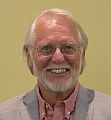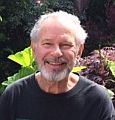JOURNEY FROM STREAMKEEPER TO ELECTED REPRESENTATIVE: “Salmon brought me a strong sense of community, something I had never really felt before. I felt protective of what we share, and that the next generation deserves it as much as we do,” stated Laura Dupont, President, Lower Mainland Local Government Association

“Salmon pulled me into appreciating nature on a whole other level. I could not learn enough about them. They are the most fascinating and resilient creatures. One cannot underestimate their importance to Indigenous communities and coastal ecosystems. Next step was to join a watershed group and become a streamkeeper, and then a river protector. Salmon led me to learn more about, and fall in love with, the flora and fauna of the BC Coast. I will always be eternally grateful to live here,” stated Laura Dupont










